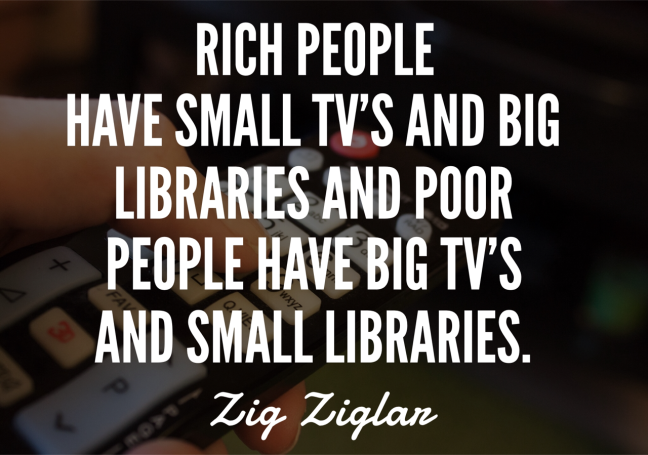Don’t let the media dictate what you need, decide for yourself!


Don’t let the media dictate what you need, decide for yourself!

Spending less time in front of the TV opens up more time, more opportunity and makes you less lazy… Don’t be #FakeRich


The biggest problem surrounding money is the lack of knowledge on how to spend and save it!
This is a topic that lies very close to home as it is such valuable knowledge that can literally save you years of heartache, stress and grief.
Schools force learners to take a subject called Life Orientation for their entire school career and insist on teaching pupils skills they’ll never use. Why are we not taking the valuable time we are forcing students to sit down and listen, to teach actual life skills!
Why aren’t we teaching tax in schools? Why aren’t we teaching budgeting, wealth creation and smart financial decision making in schools? We live in a poverty stricken first world country and no one is standing up and helping to grow a new, educated, money savvy generation.
Wealth is a success vehicle that can and should be created as soon as possible. There is no such thing as “later” or “I’m too young”. Parents don’t talk to their children about money and because of that kids grow up to be adults who don’t know what a good salary is, don’t know how to prepare for inflation and don’t have enough to ever retire. The uneducated poverty stricken cycle thus continues.
Let’s make a change! Let’s talk about money, because if you don’t, the next generation won’t either.

So you’ve spoken to a random financial advisor and you both agreed that putting away R500 a month would be enough of a saving, right? Wrong!
If you are anything like me you have the perception that R500 a month is a lot of money and that over a period of 20 years magical money making fairies would have visited your account a few times and turned your R500 into R5 000 000… Keep dreaming!
The harsh reality is that you are putting away a minimal amount of money into a fund that is only expected to grow between 9% and 12% per annum.
So let’s work that out… (R500 x 12 months) + 9% (let’s be safe here). And the total is R6 540 in savings for the year. Congratulations, you’re a millionaire.
Chances are you’ve put away less for the entire year than what you spend on rent or a bond in one month! Although interest does make your money grow, you still have to make sure that you plan smartly and put away enough so that it grows with your ever increasing lifestyle.
If you truly want to become financially free, make sure you try and get to R1m in savings as quickly as possible. It’s going to be hard and you’ll have to bite the bullet for quite a number of years, but do that and you’ll see how favourable even a 9% growth on your money will be!
Take the leap and invest in yourself today. Ask us how!

Debt is like a snowball effect… You think you have control over it and at first you do, until you don’t. Your debt starts to earn interest and then even your interest has interest and before you know it you can’t seem to get rid of it.
So how do you beat the vicious cycle??
Always start with your smallest debt! It’s the easiest one to get rid of and will give you a sense of accomplishment once you’ve settled it.
Let’s say you’re putting away R350 a month toward a clothing account every month. Instead of just paying the minimum, add another R150 and pay off R500 per month. Keep doing this until you’ve paid off the account and don’t use that account again.
Now you would have an additional R500 per month and 1 paid off account. Instead of saying “I have more money each month” and spending it all, use that R500 and contribute the entire amount to another account you’re trying to pay off. You’re used to not having that R500 anyway, so use it to better your financial situation.
Now instead of paying, say, R1000 a month toward a credit card, pay R1500 per month until that’s also paid up.
This way, your system of getting rid of debt will snowball and free up a lot more cash toward the end of your goal – you’ll also get rid of those pesky interest rates a lot quicker, saving you even more money.
And that’s the basic principle! Start applying it to your life TODAY, you won’t regret it. For more info and a more detailed explanation, please contact us via the blog to speak to an accredited financial adviser.